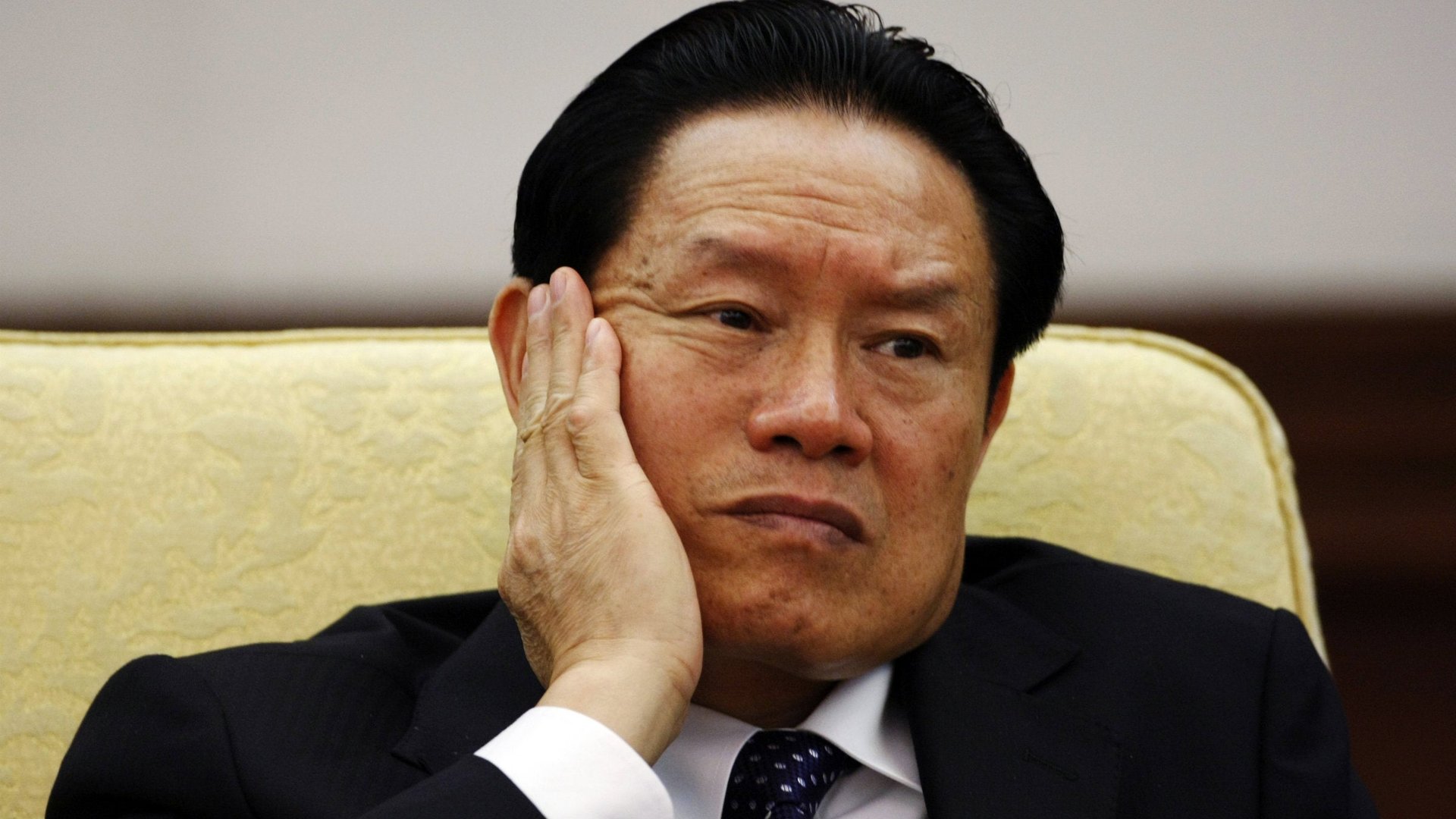Why Xi Jinping may soon call a halt to his latest corruption crackdown
Beijing has purged some 300 officials and their relatives who made up China’s powerful “petroleum faction,” not to mention seized some $14.5 billion of their assets. The question is whether the unprecedented corruption investigation will expand further into China’s oil industry, which has produced much of the country’s riches and many of its most powerful leaders, or even into other parts of the elite.


Beijing has purged some 300 officials and their relatives who made up China’s powerful “petroleum faction,” not to mention seized some $14.5 billion of their assets. The question is whether the unprecedented corruption investigation will expand further into China’s oil industry, which has produced much of the country’s riches and many of its most powerful leaders, or even into other parts of the elite.
But the betting is that president Xi Jinping will wind down the crackdown before long given the threat that it poses to the entire regime.
So far, the inquiry has singled out (paywall) people associated with the gargantuan China National Petroleum Corporation (CNPC), No. 5 on the Fortune Global 500 list of the world’s largest companies with $408 billion in sales last year. It has not touched China’s other two oil giants—Sinopec and Cnooc–nor anyone else.
But so many powerful actors have been swept up in the probe of Zhou Yongkang and his family and protégés that the momentum could easily carry over into the rest of the industry, which exercises outsized influence in nearly every sphere of the country.
“Anti-corruption campaigns in China have a way of getting out of control. Xi has to decide when to call off the dogs, after he feels he’s fully consolidated power,” said Ed Chow of the Center on Strategic and International Studies in Washington.
Until he was placed under house arrest in November, Zhou was China’s most powerful oilman. He rose through the ranks to become chairman of CNPC, then, following a familiar ascent to the top of the party, became security chief and a member of the nine-man ruling Politburo Standing Committee.
Along the way, many of his closest relatives and protégés accumulated vast wealth, according to more of the remarkable reporting that’s come out of China the last couple of years. Among the best stuff in the West has been by the New York Times, Reuters and the Financial Times; until it had second thoughts about some of its aggressive reporting in China, Bloomberg was strong on the wealth story as well. In China itself, the business magazine Caixin has broken numerous stories on the subject. None of the reporting has found assets controlled directly by Zhou, who has not been charged with any crime.
One aspect that hasn’t been clear is whether Xi is cracking down specifically on the petroleum faction, halting the Chinese elite’s wealth engorgement, or simply cutting Zhou himself down to size. Many analysts believe it is the latter—that Xi is punishing Zhou for protecting and championing Bo Xilai, the discredited senior official imprisoned for life in 2012. “As a princeling, Bo was a rival for top leader with Xi. Zhou protected him and wanted Bo to replace him as security chief,” Chow told Quartz.
Andrew Wedeman, a professor at Georgia State University who studies Chinese corruption, said he foresees no broader attack on the oil industry. To the degree it goes on, the inquiry could threaten party rule given that it has long accepted the elite’s accumulation of wealth.
“Xi has to start to figure out a way to wrap the campaign up and has to figure out how to do that in a way that makes it appear that the main purpose of the campaign was to attack corruption not to pursue a political vendetta against Zhou,” Wedeman told Quartz.
Yet, as Chow said, campaigns sometimes take on a life of their own. For Xi, the issue is how nervous the rest of the elite is about the crusade he has unleashed.